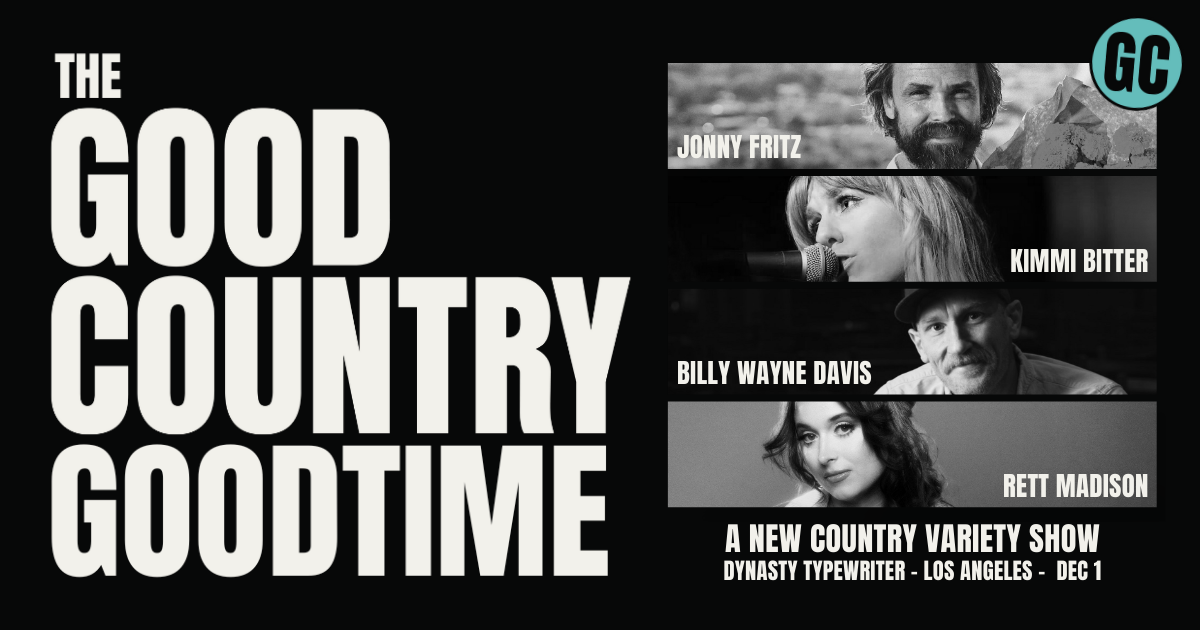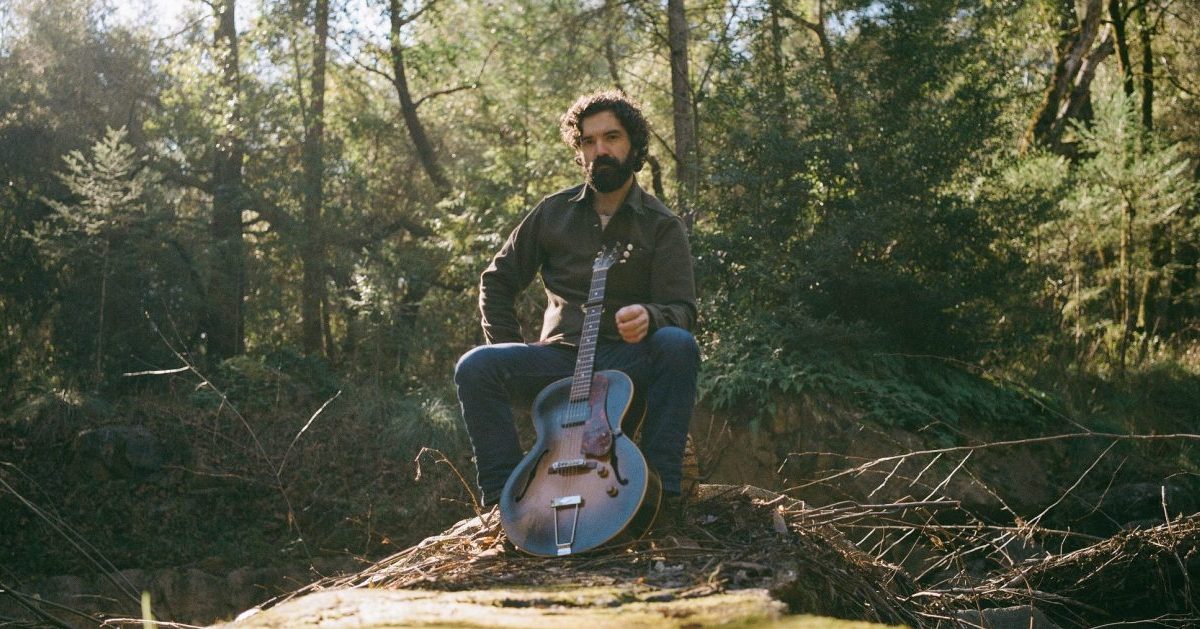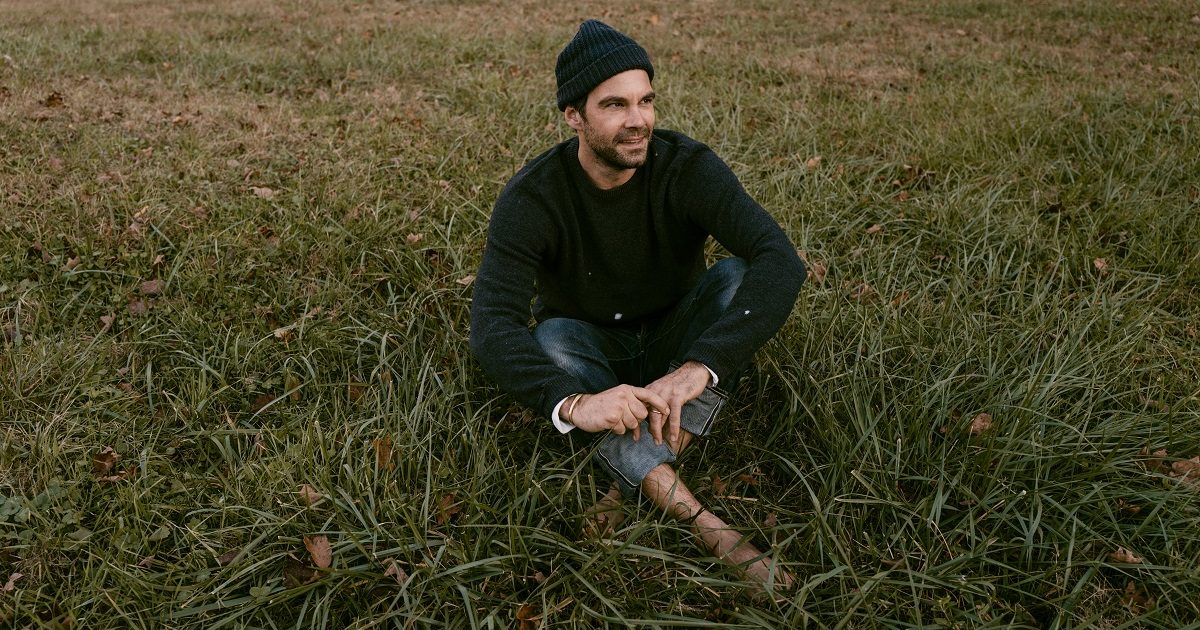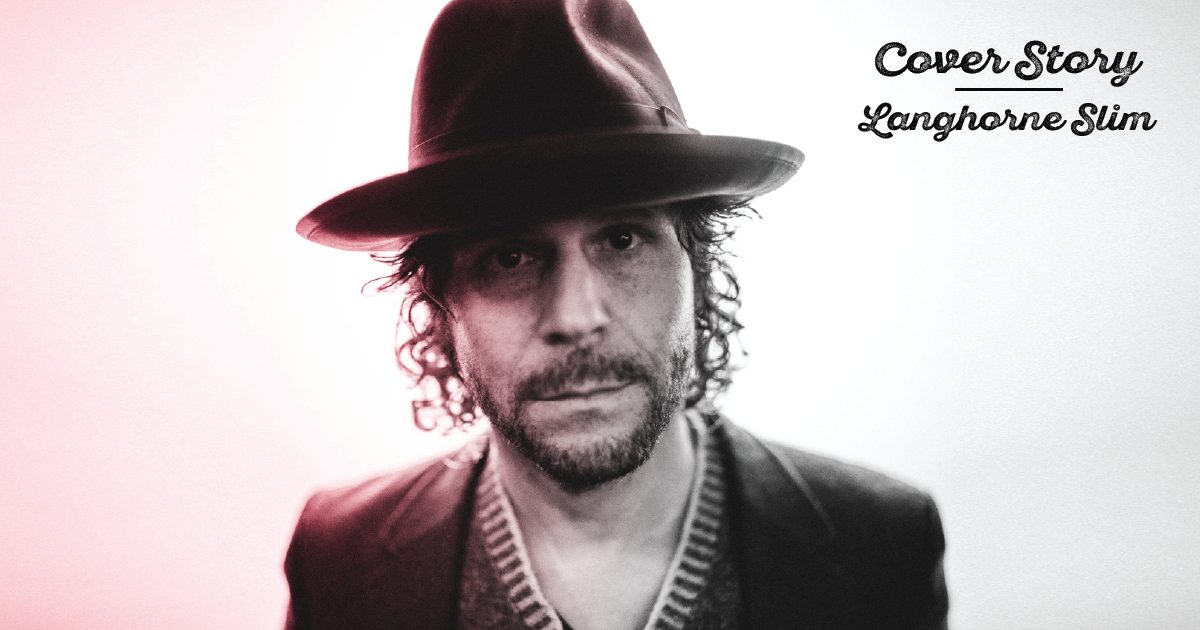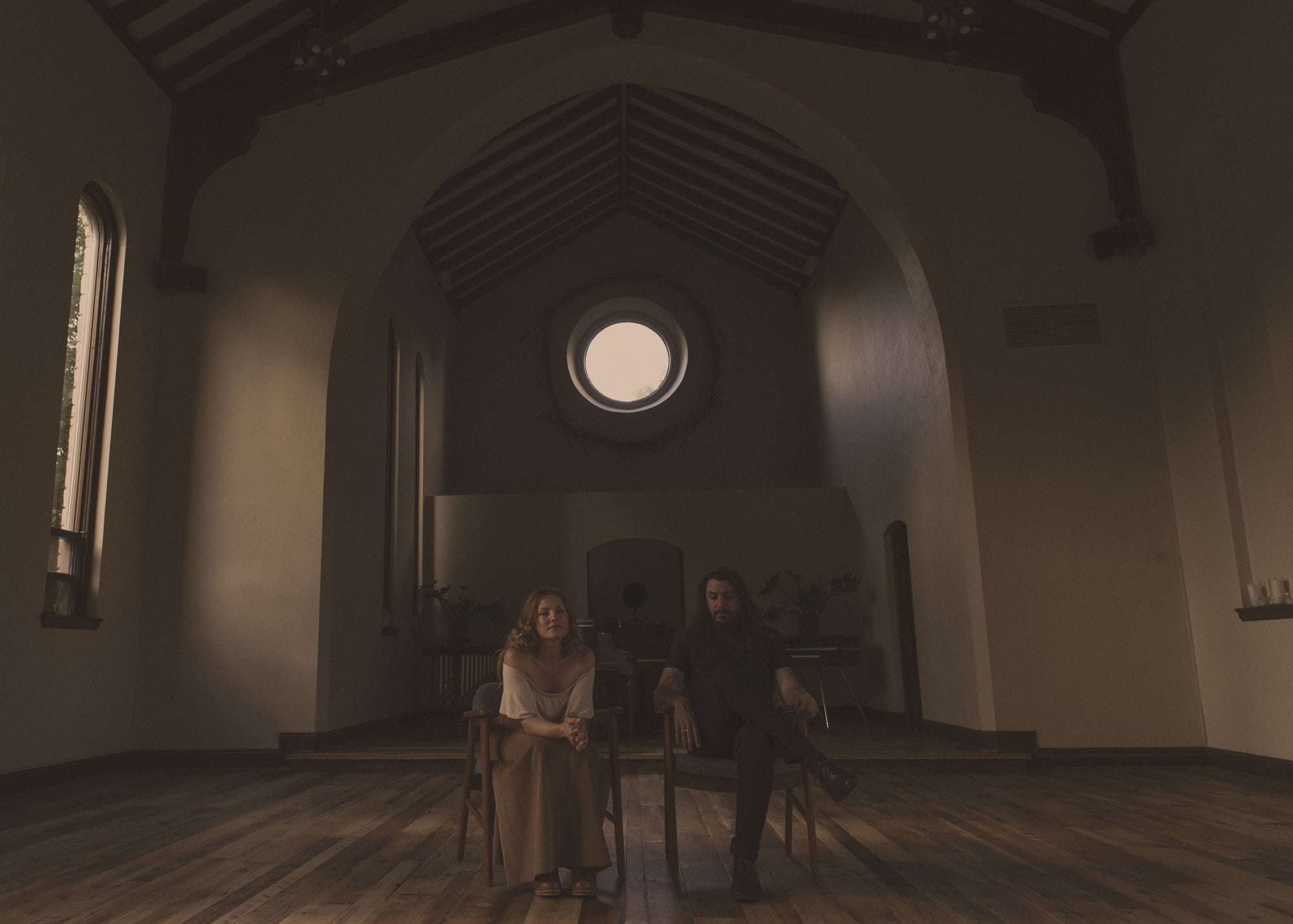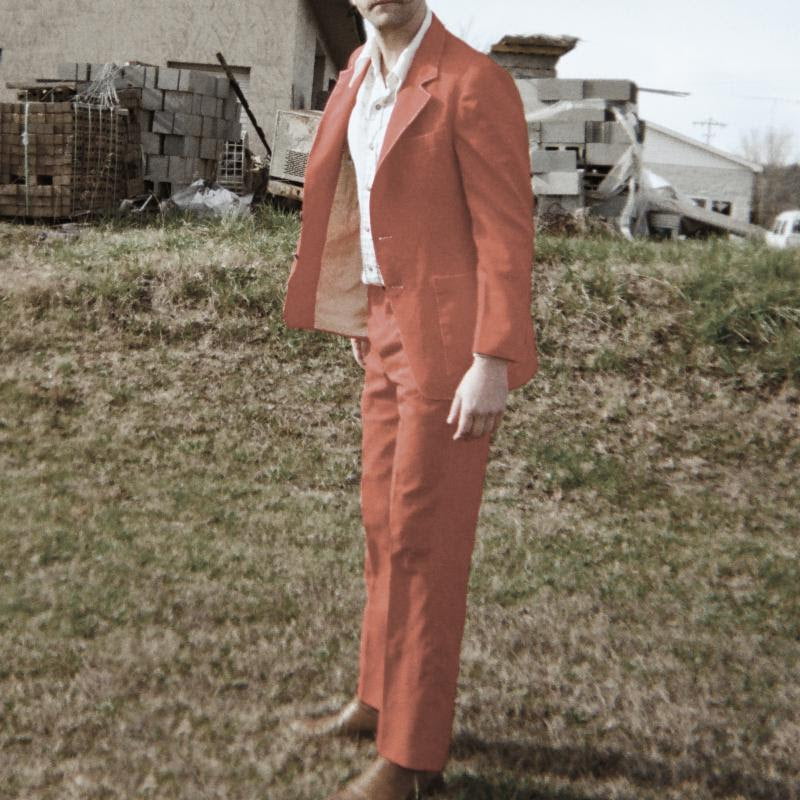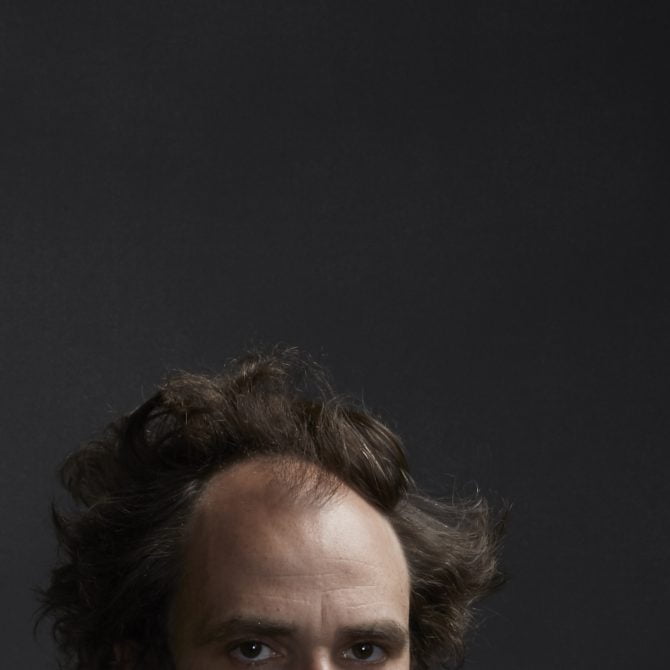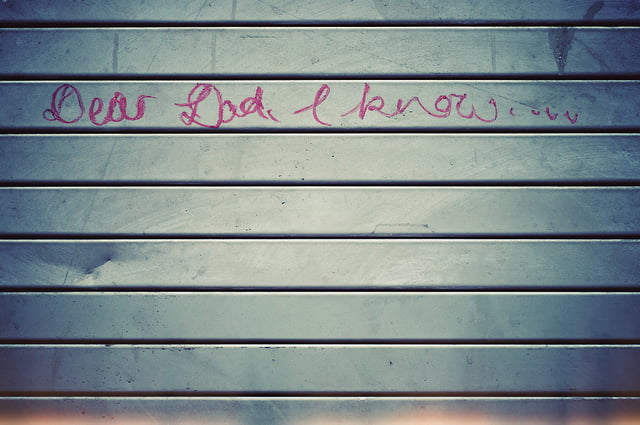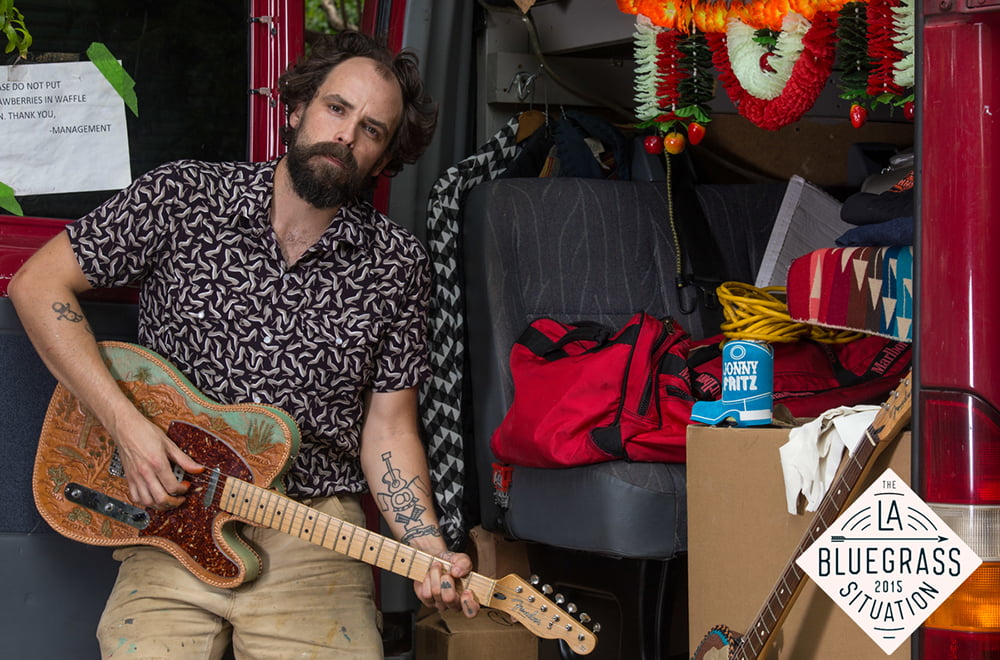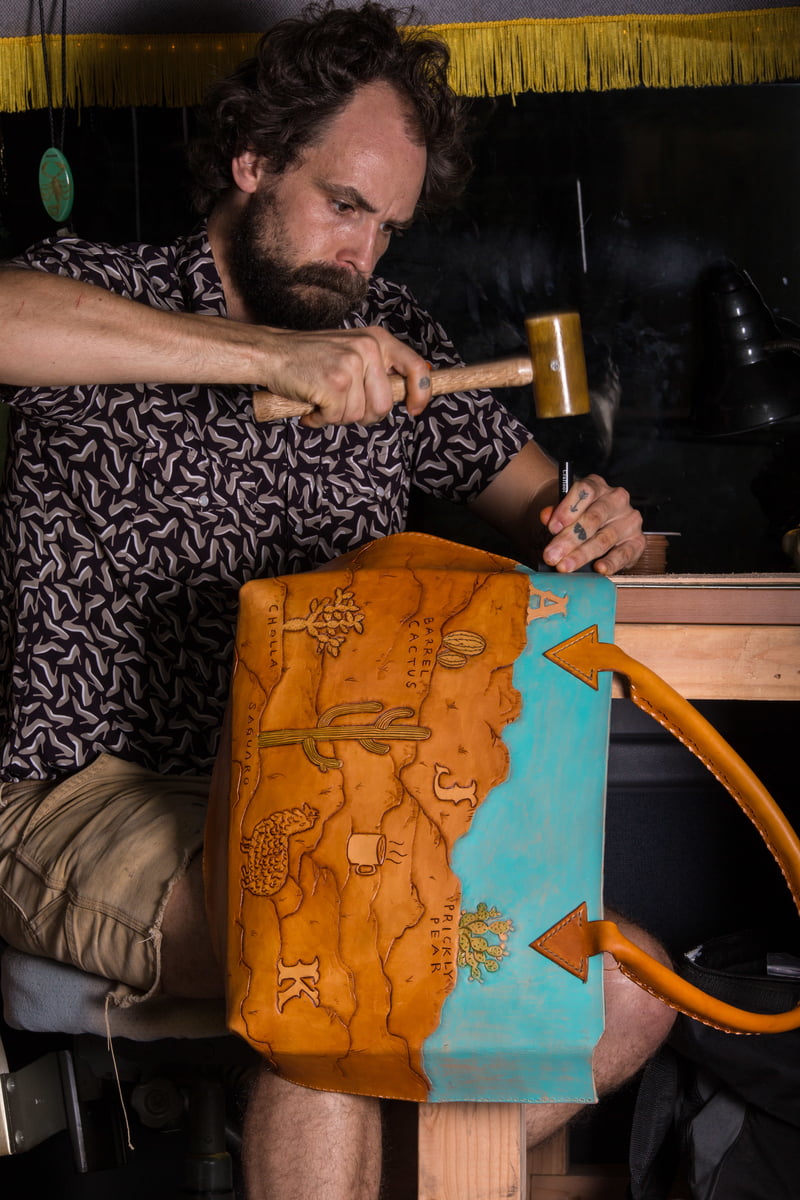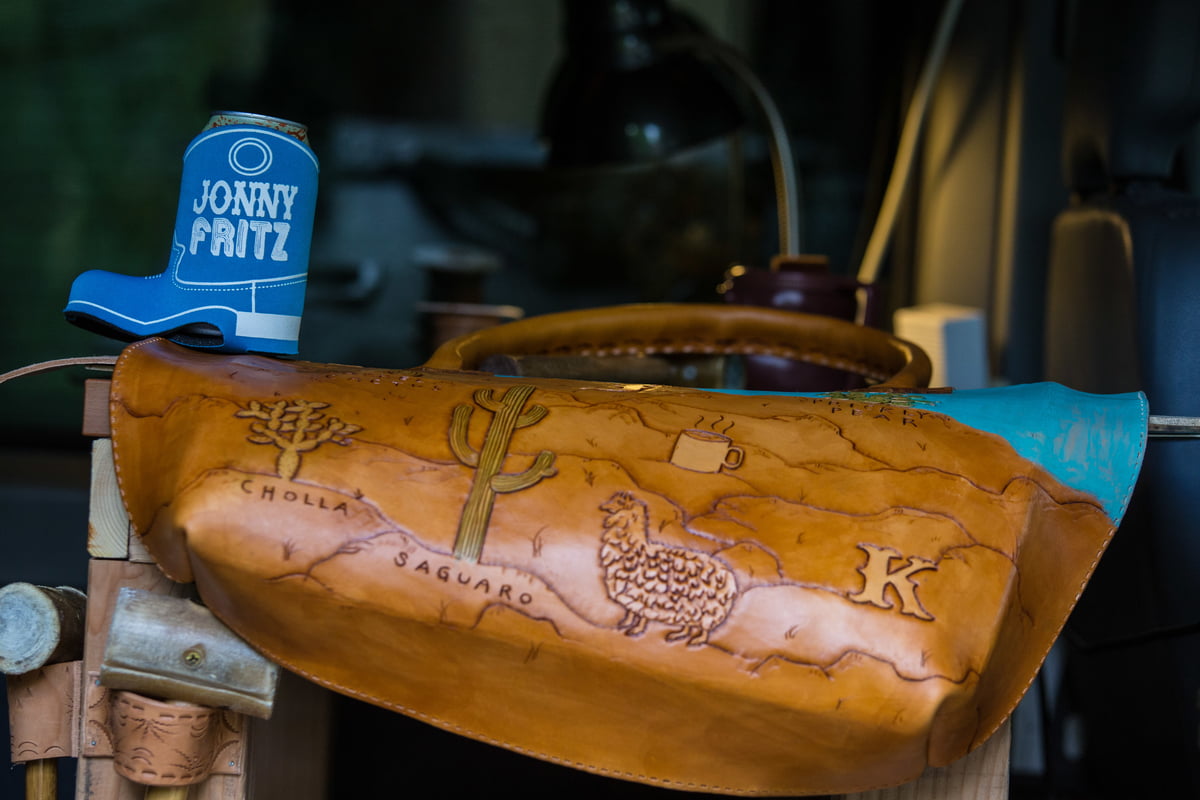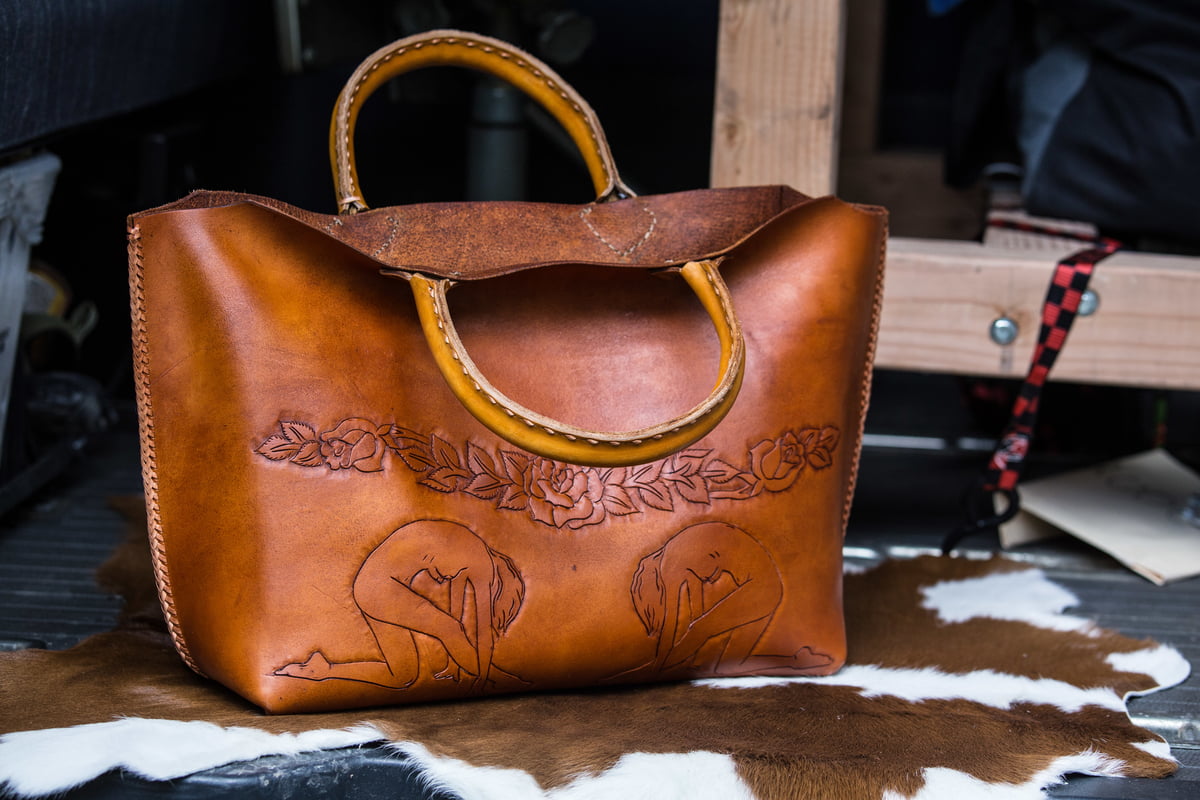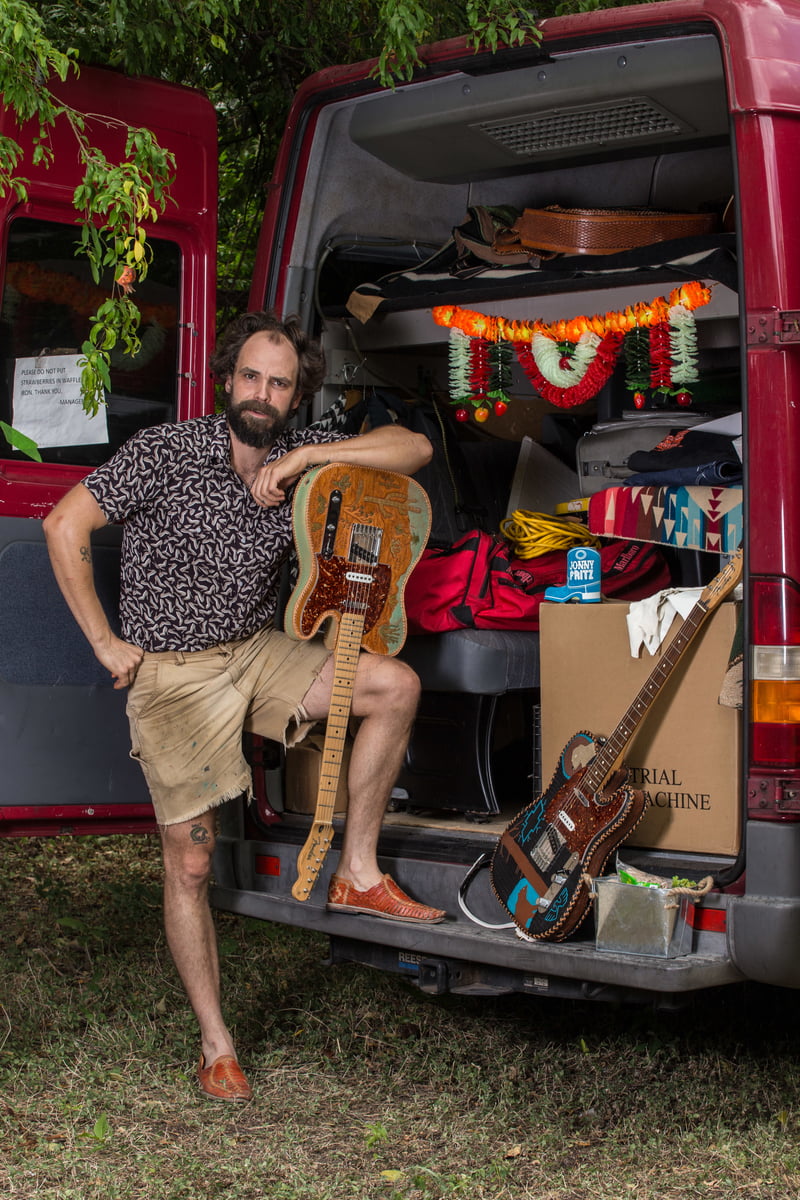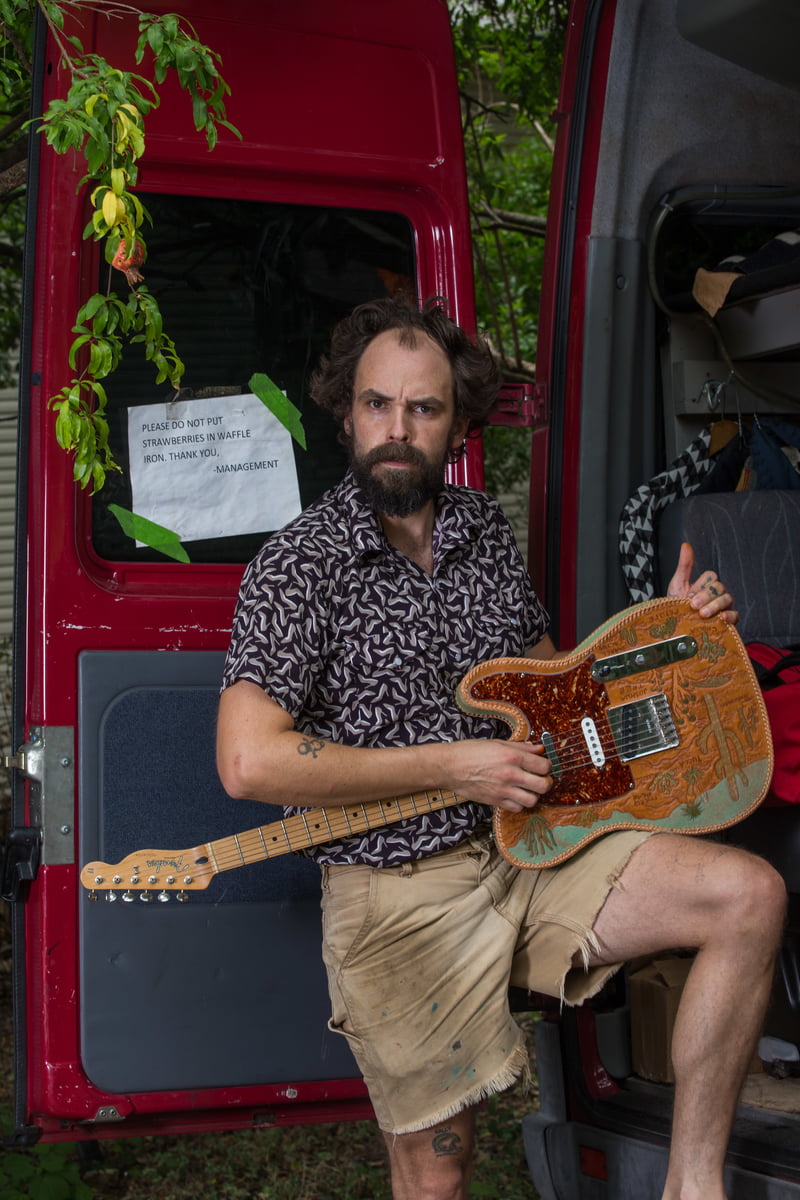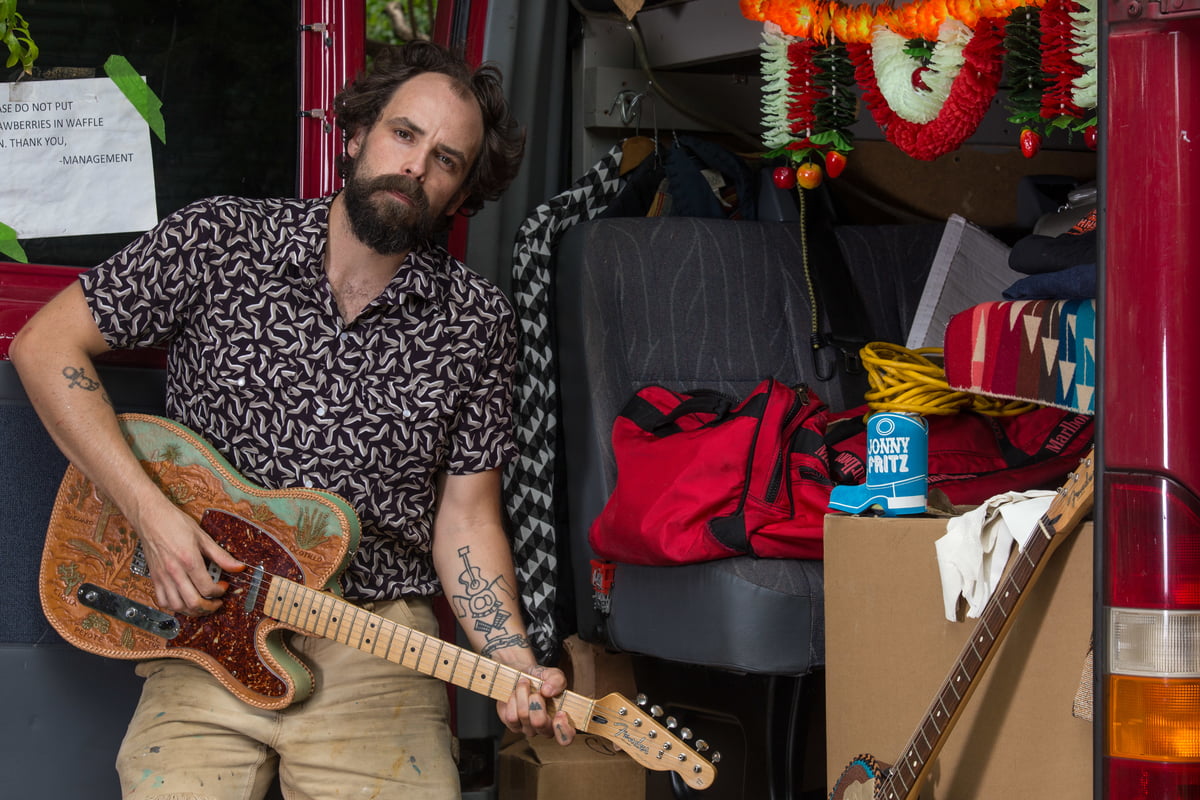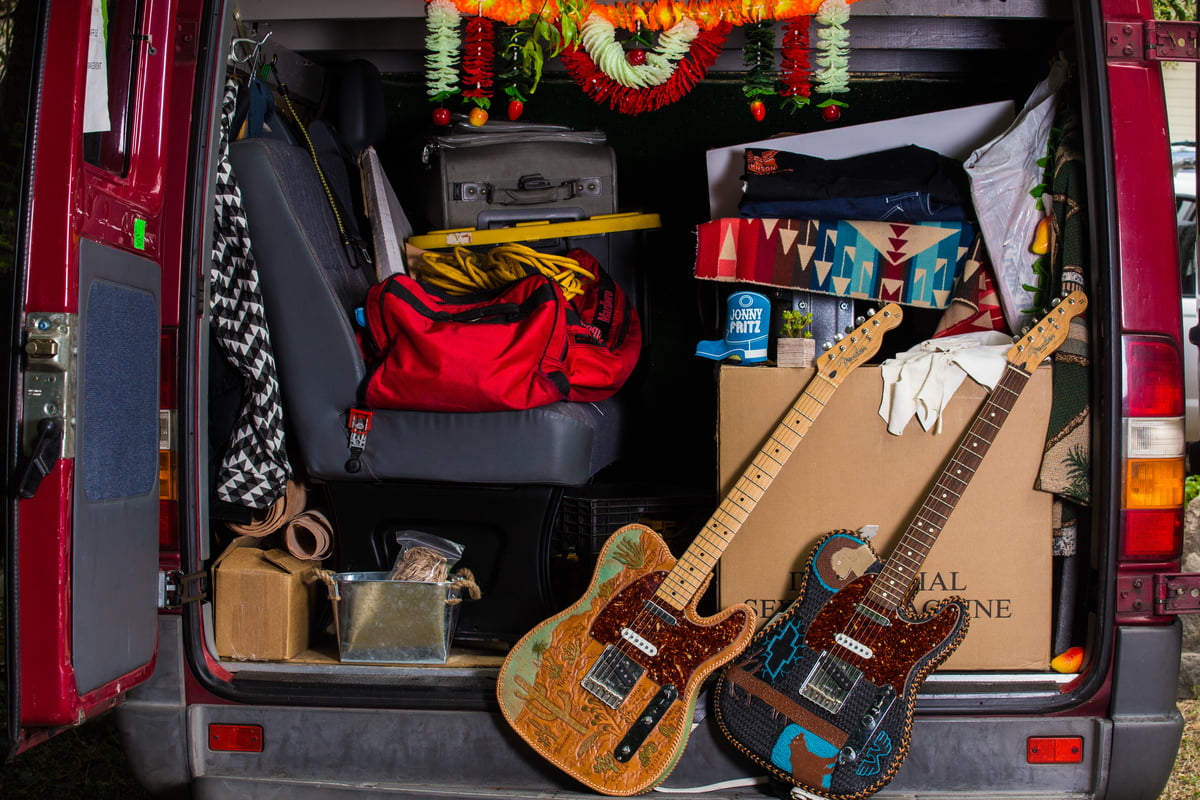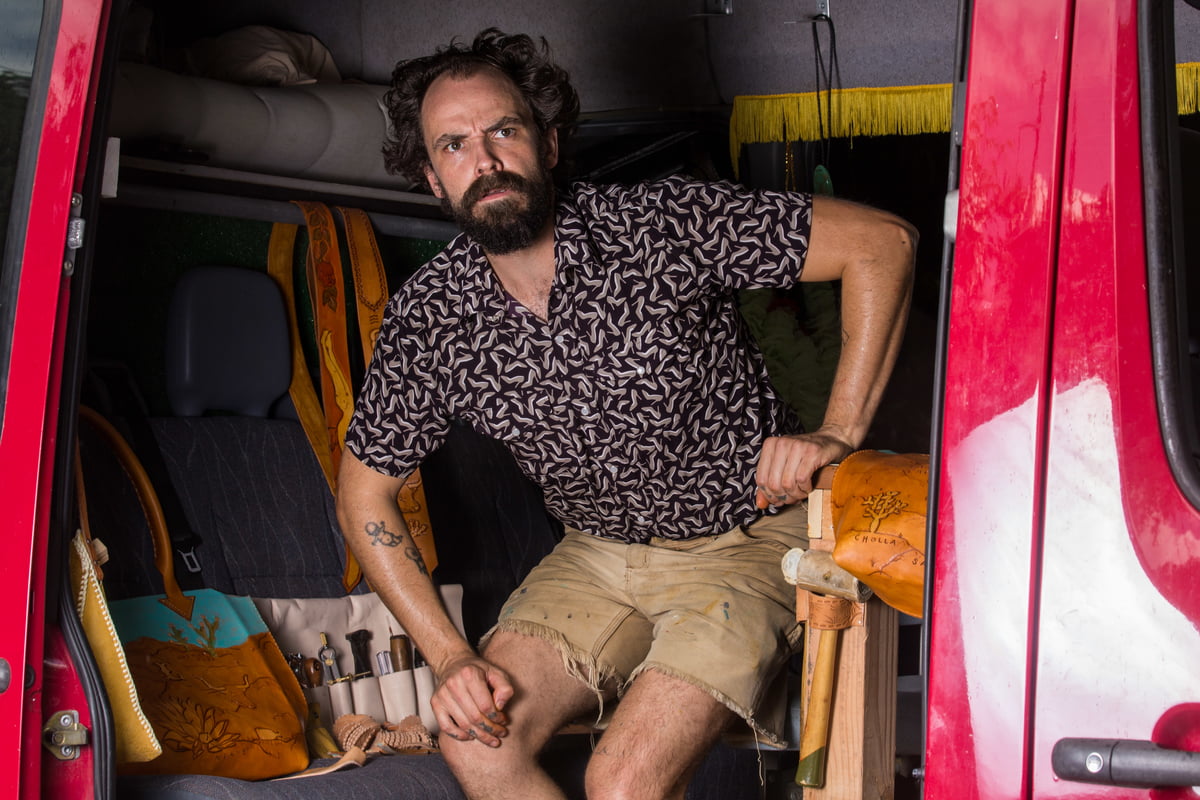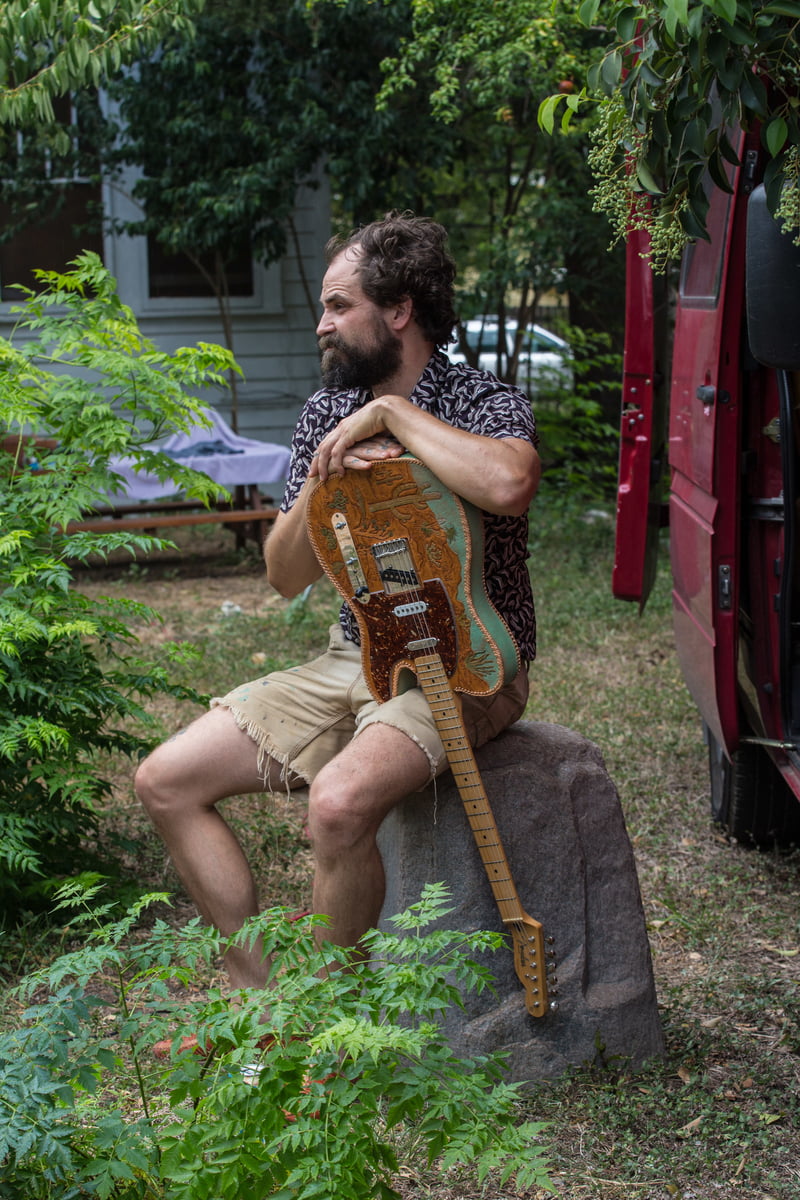On a weekday afternoon in September, Cory Chisel and Adriel Denae are at home in Appleton, Wisconsin. It’s been a busy summer. Several weeks earlier, the couple brought 225 bands to town for Mile of Music, the citywide festival that Chisel helped launch in 2013. Not long before that, they hosted the recording sessions for a handful of upcoming albums — including Erin Rae’s newest, Putting on Airs, as well as the debut release from Traveller, Chisel’s trio with Robert Ellis and Jonny Fritz — at the Refuge, the 33,000-square-foot building that once served as a monastery and now pulls triple duty as an art studio, live music venue, and Chisel’s headquarters.
“We used to live at the Refuge, too,” he says. “Now, we have a house as nearby as we could possibly be, without being on the grounds. It wound up being good for us to have a little bit of distance, and not be at ground zero all the time.”
A little bit of distance … Chisel has been working on adding some sort of space — a buffer zone between his current environment and the one he once inhabited — to much of his daily life. Once a roots-rock road warrior who spent eight months of every year on tour, he’s since grown more attached to the home, and the family, he’s built alongside Denae in Appleton. It’s easy to see why. The two have a son, Rhodes, as well as a new album, Tell Me True. Years ago, they would’ve promoted Tell Me True by hitting the highway and gigging relentlessly, but things are different these days. Priorities have shifted. And with those shifting priorities comes a deeper appreciation for the things that matter: family, roots, the gigs that do find a way onto the couple’s schedule, and the downtime that elapses between those shows.
You spent years living in a van, but this year has been different. What pushed you to stay home and plant deeper roots in Appleton?
Cory Chisel: As an artist who tours, you know how you feel like you’re constantly chasing something? You’re chasing the crowds. You’re chasing the people who like you. That’s what the majority of our careers have been. I’ve always felt like I’ve showed up to the party one year after the party ended. Our approach now is to invert that system, if only just to try it. We’re at a point where we’re looking inward and creating our own environment that has pieces of all those things we’ve seen elsewhere, rather than running to those places.
Adriel Denae: Finding out I was pregnant really shifted everything, too. I’d been living on the road since I was 21, and I enjoyed the gypsy lifestyle. I think I had this delusion that I was gonna have a baby and strap him on my back and keep doing it, but when our son arrived, I felt an immediate shift and started craving a deeper connection to the place I was living.
As artists, what are the benefits of spending more time in one place?
AD: It can really help you, in a creative context, to sink down a little deeper into life and a community. I enjoy interacting with artists who’ve lived this way for a long time, and never got on the industry boat the way we did. There are fascinating artists all over the world who’ve never played the game we started playing. I’m finding it really inspiring to interact with them. That’s something that’s fun about moving outside of the music mecca parts of the country.
Let’s compare your current situation with your busiest days as touring musicians. Which album kept you on the road the longest?
CC: That would be Old Believers. And I’m not complaining at all. I needed that experience.
AD: We did have a blast.
CC: We did. But I did have a nervous breakdown, too, where I felt like my soul was always two towns behind me. I showed up to the Letterman stage, and I’d be lying to you if I said I felt anything. This would happen a lot: I’d get to this place I thought I wanted to reach, and either it didn’t feel nearly as momentous as I had expected it to feel or the comedown was so strange that I’m not sure it was worth coming up. We traveled the world as bodiless ghosts for years. For most artists, that’s how you survive. You’re just trying to pick up the next $100 in the next town. But the thing is, that $100 is exactly the price it takes takes to get to the next $100. And at some point, you ask, “What are we doing, exactly? What’s next on this journey as an artist?” After years of touring nonstop, I was ready to try something new.
AD: We hit a season, right around the time we moved to Nashville, where we were only home for a few days a month for the whole year. We’d say hi to friends, do laundry, and then get going again. I liked the lifestyle. I honestly may have enjoyed it a bit more than Cory …
CC: Because I was in charge of the thing. When you’re in front of the boat, you’re taking the full waves, too. Nothing was wrong with it; I was just done with it for awhile. So that’s why I wanted to create a context where I could still be an artist, but reorganize.
And part of that organization included transforming the Refuge’s chapel into a recording studio. You made Tell Me True there. Is the studio a reaction to the more expensive studios you’ve seen elsewhere?
AD: When you’re a young musician, you spend a lot of time dreaming and anticipating the moment where you’re in the studio for the first time. You think it’s gonna be a certain way. But in reality, I was unprepared for the amount of anxiety and awkwardness that a professional studio environment can create. At first, I thought it was a problem with me. Then I read this interview with Elliot Smith, where he was comparing the process of home recording to the experience you get in a big studio. You know what it’s like in a big studio: There’s an artist sitting in a booth with headphones on and cords everywhere, and you get into this headspace where you’re ready to create your song, and suddenly there’s a buzz in some line somewhere, and everything has to stop, and everyone starts running around, and you have to sit there and maintain some space for yourself while they fix it. There’s a lot stacked against you, before you even consider the financial constraints. I can really understand the draw to recording in non-traditional spaces, whether it’s someone’s home or someplace else. A lot of my favorite recordings were done that way. We hit a point in our journey where we were really longing for that.
When did the songs for Tell Me True begin to arrive?
AD: During those months of our son, Rhodes, being a newborn.
CC: It arrived either as a way to soothe our little baby or immediately after he went to bed, in those weird half-awake, half-asleep moments you have as a new parent, where you’ve got a tiny amount of time to do something other than grapple with a new life. It was in those little, tiny spaces. I used to have all the time in the world to do God knows what. That time vanished, but the songs didn’t. I worried that if I added more to my life, the music would go away. But the music just accompanies life. It’s a way of digesting or processing what’s happening to you.
AD: I remember once, when Rhodes was just a few weeks old, I woke up in the middle of the night and Cory wasn’t in bed with us. I could hear a guitar from the other room and, around sunrise, Rhodes woke up and we both went to find Cory, and he was sitting on the floor in Rhodes’s room, which our son never actually moved into. He had that crazed look you get when you’ve been writing all night, and he’d completed a song. It came out through the night like that. There were other songs, like “Tell Me True,” that were refrains we’d been singing for weeks. A lot of the music on the record was something that had been floating around us in that three-month period. I feel like Rhodes brought a lot to us with his life, and that record is part of what he helped to create when he came.
You haven’t entirely stopped touring, though.
CC: We haven’t, but touring is different now. I don’t go out with Traveller for more than 10 days at a time. Our upcoming tour to Australia and New Zealand is a good example. We might have continued that run, but I just couldn’t do it. So Robert [Ellis] is going to Japan afterward to play solo shows. I have things now that matter more to me than going everywhere during a tour. Being present in this life, here, is my number one treasure. When I say to an audience now, “I’m so glad you’re here, and I’m so glad I’m here,” I’m definitely not lying. I love having so much truth to that exchange.
I visited Appleton for the first time this year as a Mile of Music performer. The town is great, but the festival … that festival is fantastic.
CC: Thank you. That festival was born out of one question: Could this thing be done differently? Could we have a festival that was really for the benefit of the people attending, as well as the artists playing? We weren’t asking ourselves, “How much money can we squeeze out of these people involved?” For me, it feels different than other festivals. So we thought, “If that’s possible, why can’t everything be changed?”
You mean, if a festival like Mile of Music can be successful, why can’t a recording studio like the Refuge be equally successful? Or a homemade album like Tell Me True?
CC: Sure. The music industry isn’t that old. We think of it as this unchangeable thing, but it hasn’t been around long enough to earn that kind of respect. I think it’s necessary to disrespect it a bit and see what can be changed.
Meanwhile, Adriel has been working on her new record, too.
AD: Cory and I are in different places in our careers. I’m just beginning the process of releasing my own songs and couldn’t be more excited to do it.
Norah Jones produced it. She’s been a friend and fan for years, right?
AD: I was a fan of hers first. Norah took Cory out on the road in 2012, and she wanted it to be a stripped-down opener. He brought me and a guitar player along, and we wound up finishing the tour just the two of us. I was so star struck. I could hardly even talk to her. I was just a huge fan and have been since her first record.
How did the tour lead to an offer to produce your record?
AD: She started asking me if I’d been writing my own songs, and she asked that I send them to her. I sent her some demos, and she was so encouraging and affirming. She had built out a home studio at her house and she offered to produce, and that was just the biggest dream come true. So I went to New York in January of that year, and I found out I was pregnant 48 hours before getting on the plane. That threw a huge curveball into the equation.
CC: Norah was pregnant, too, so the producer and the musician were both making a record and a baby at the same time.
AD: It was a very sober recording experience! We were in our pajamas and slippers the whole time. I kept seeing her as a painter, more than a producer. It felt like she was helping me find my colors and helping me paint this picture around my ideas. It was really fun to experience record-making with that kind of feminine sensibility and energy to it.
Where was Cory during this?
AD: He was watching Game of Thrones in Nashville.
CC: I told her not to make a record while Game of Thrones was on!
Do you look back and regret that you weren’t there, Cory?
CC: This was Adriel’s art, with Norah in the producer’s role. Now I get to enjoy it as one of my favorite records, and I don’t have that weird feeling of … you know when you work on an album, you can’t hear it the way other people hear it? It’s almost as though, if you participate in it, you can’t be a fan the way others can. So I’m glad to have that record in my collection, where it can be one of my favorites.
Is there a title?
AD: There’s still time to figure that out, but I’ve always thought of it as being called The Edge of Things, which is a song on the record. I like to start some of my sets with that song because, for me, it’s a kick in the pants to not be afraid to jump into the unknown. But I guess we’ll decide before February, which is when it’s coming out.
What about the Traveller record?
CC: If all of this pans out, it would be fun to time it together, so Traveller’s record and Adriel’s record both come out at the same time, and we’re all touring at once. Because then we’ll be a tribe, and everyone’s traveling all together. And suddenly, Gary, Indiana, becomes a lot more fun to be in.
Photo credit: Justus Poehls
